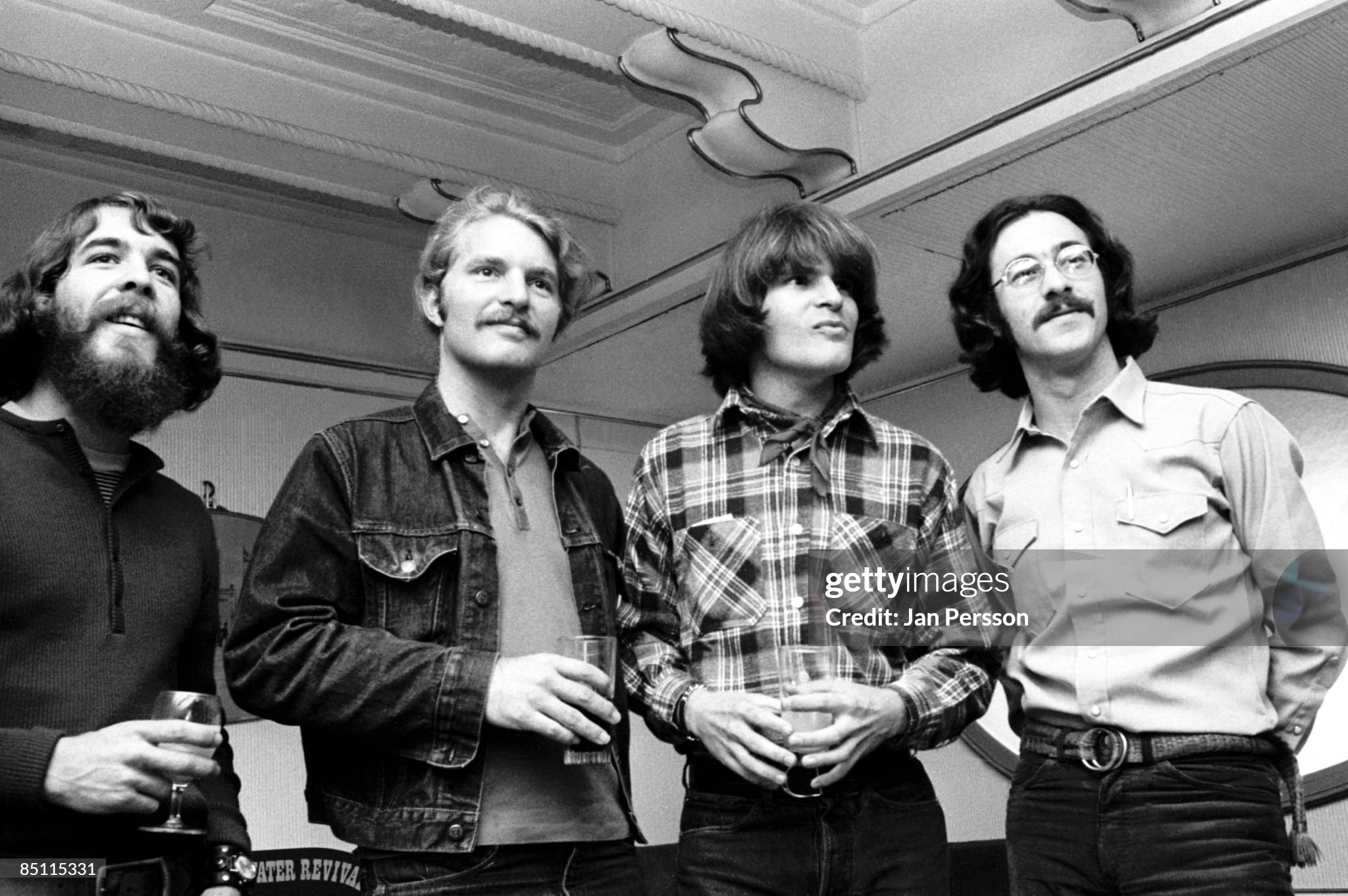
“Graveyard Train” is CCR’s dark, rolling meditation on sudden catastrophe—an eight-and-a-half-minute blues trudge where fate moves like steel wheels and mercy never hits the brakes.
If you want the anchor points first: “Graveyard Train” is a John Fogerty original, recorded in October 1968 and released on January 15, 1969 as track three on side one of CCR’s second album, Bayou Country (label: Fantasy Records). The song itself wasn’t issued as a headline single in the way “Proud Mary” was; it was an album statement—long-form, ominous, and intentionally un-radio-friendly. And yet the album that carried it mattered enormously: Bayou Country rose to No. 7 on the Billboard 200, the first clear proof that Creedence Clearwater Revival were no fluke after “Suzie Q” opened the national door.
That matters because “Graveyard Train” is the sound of a band deciding who they really are.
When people talk about CCR, they often talk about efficiency: short songs, sharp hooks, a band that could hit you in under three minutes and still leave dust in your throat. But “Graveyard Train” is the exception that reveals the rule. It stretches to roughly 8:37 (timings vary slightly by pressing), and it closes side one like a heavy curtain coming down. It’s not flashy. It’s not “psychedelic” in the San Francisco way. It’s more like an old blues spell repeated until it turns physical—until you can almost feel the room getting darker.
The story the lyric tells is stark and brutally plain: a highway disaster, lives lost in a blink, and the sense of something unstoppable moving through the night. Fogerty’s writing here doesn’t romanticize tragedy. He reports it with the blunt force of a headline and the dread of a witness. The “train” is both literal and symbolic—an image of death as momentum, as something that arrives whether you’re ready or not. That idea is older than rock and roll: the train as the great collector, the iron messenger. CCR simply plug it into an amplifier and let it rumble.
Musically, you can hear why the title works so well. The groove “choogles” (to borrow Fogerty’s own vocabulary from the same album) with the steadiness of wheels on track. The guitar figure is repetitive by design—less a riff than a rut—because the song wants to trap you in its motion. Drums and bass don’t decorate; they drive. There’s a primal discipline to it, a refusal to add anything that would soften the blow. The atmosphere is swamp-rock before the term became a cliché: humid, murky, half-lit, with blues DNA running underneath like dark water.
And then there’s the behind-the-scenes truth that gives the song an extra chill: CCR themselves never played “Graveyard Train” live in their original years. It remained a studio creature—too long, too specialized, too heavy for the hit-packed sets they were expected to deliver. Decades later, John Fogerty finally brought it to the stage for the first time on September 7, 2012, during a run of shows built around Bayou Country material. That delayed “premiere” feels almost poetic: a song about time’s harsh finality waiting forty-plus years to be spoken aloud in a concert hall.
So what does “Graveyard Train” mean in the larger CCR story?
It’s the band showing that beneath the crisp singles was a deeper, older engine: the blues as a way of describing the world when it stops making sense. In early 1969, America was loud with upheaval and grief, and CCR—four working musicians from Northern California—answered with something that sounded like it had been around forever. “Graveyard Train” doesn’t offer solutions. It doesn’t even offer comfort. It offers recognition: the acknowledgement that disaster can arrive with no warning, and that sometimes all a person can do is stand beside the wreckage and describe it truthfully.
Put it on with the lights low and let it run uninterrupted, the way side one of Bayou Country intended. You’ll hear a band at the threshold of greatness refusing to be polite, letting the groove carry the weight. “Graveyard Train” isn’t a song you casually “like.” It’s a song you enter—and when it finally pulls out of the station, it leaves behind that quiet, uneasy feeling that the night is bigger than you thought, and the road is never entirely safe.